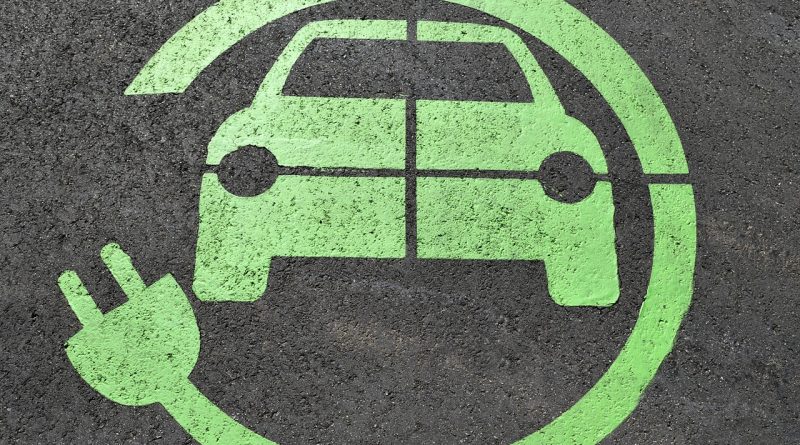who killed the electric car, how about actual situation?
Might the most fuel-efficient vehicles in mass production–powerful hybrids, such as Toyota’s Prius, that can run on either gasoline or electricity–already be destined for the science museum?
That’s the argument that French carmaker Renault is making at the Mondial de l’Automobile, the giant auto show running.Renault says that it is engineering a pair of battery-powered electric vehicles (EVs), to be produced starting in 2011, that it claims will be cheaper to build, cost markedly less to power, and produce far less carbon dioxide. Renault’s vision for electric cars is small vehicles principally designed for commuting. At the Paris show, Renault unveiled a concept car showing the design of a compact EV commuter car: an EV version of its Kangoo utility van, with startling acid-green windows to minimize air conditioning and a lithium-ion battery that carries the van 160 to 200 kilometers on an average charge. That range “really covers the usage by our customers, who are using their cars only for commuting and maybe short trips during the weekend,” says Renault EV project director Serge Yoccoz. As a result, he predicts that such EVs could capture from 10 to 15 percent of the European car market as early as 2015. (Hybrids currently command just 2 percent of auto sales worldwide.) Renault won’t be the first to test the commuter market with battery EVs. Mitsubishi Motors announced in Paris last week that it will begin testing its i-MiEV minicar in Europe next month with a view to commercial sales by 2010.
Daimler, meanwhile, said that a battery version of its popular Smart Fortwo, in testing in London since last year, will be sold starting at the end of 2009.Renault says that EVs are a necessity because hybrids cannot deliver the level of gasoline use and emissions reductions that governments and customers are demanding of automakers. The EV is the breakthrough required because, according to Renault, driving the EV Kangoo displayed in Paris generates zero carbon dioxide when charged with renewable energy, and no more than 60 grams per kilometer when charged on today’s coal-heavy power grids; when charging in France, carbon-dioxide emissions would be somewhere in between because nuclear power provides 80 percent of France’s electricity.
On this spot there’s a new scenario about electric transaxles for electric vehicles, with the new website http://www.ac-transaxles.com. Any of those scenarios compares well with the more than 130 grams of carbon dioxide per kilometer coming out the tailpipe of Renault’s diesel-fueled Kangoos, which are relatively efficient vehicles for their class.Lithium batteries for Renault’s first round of products, at least, will come from a joint venture of Japan’s Nissan, with which Renault is partnering on EV technology development, and NEC.
Newer lithium technologies have eclipsed the performance of the joint venture’s manganese-based lithium-ion chemistry, but Yoccoz says that the Nissan-NEC process is one of the cheapest. With the new transaxles the vehicles efficiency will grow, and will permit longer drive with a load of battery.
For more info please visit http://www.ac-transaxles.com, where you can find information about high ratios transaxles for electric vehicles.
Since 90 years our company was looking for a new compact solution for move battery operated vehicles. The main problem, was not to manufactures the mechanical transmissions, but was to create something new that can increase the capacity of existent battery operated vehicles, in speed, performance and autonomy.
As each man knows, one of the biggest problem of battery operated vehicles, was the battery capacities. In fact to obtain really good performance, a vehicle need to assembly really big (and weight) battery packs, and this cannot be accepted in 2007 year!
This is a problem for the vehciles, in fact this is a problem of costs, weight, manutention, chassis construction and so on.
So, Benevell Srl company will project in 90 years a new transaxle that had finally solved all these problems. In fact with the series named TX1 (http://www.benevelli.biz), Benevelli Srl company gives to the electric vehicles constructors the possibilities to have normal battery pack and really good performances, in speed and autonomy.
The high grade of tecnology of these series (TX1, more info here http://www.benevelli.biz/AreaProdotti/tabid/56/Default.aspx) had give to all constructor of electric vehicles the possibilities to grow his business, and maybe give the possiblities to this world to cut a little bit of pollution, because electric vehciles are the future, and we believe in that.
Wewant a world full of car and vehicles that run, but run with electrical powered transaxles, and doesn’t create any pollution, to give to our sons a really better world.


